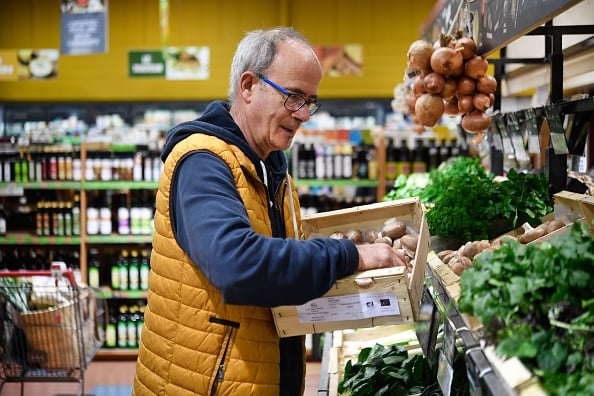Over the past 36 years, the French organic retailer Biocoop has become one of the world's most inclusive businesses. It topped the FT's annual Diversity Leaders ranking in 2020, which is based on diversity of gender, age, ethnicity, disability and sexual orientation in the workforce.

The group's progressive values have been a key part of its stand-out commercial success. Today, Biocoop commands the largest share - 12 per cent - of France's €11.9bn expanding organic food market.
Biocoop's inclusive practices have also enabled it to compete for talent in a tight labour market. Unemployment in France is at a decade-low of 7.4 per cent of the workforce, leaving many companies scrambling to find workers.
The company is regarded as particularly progressive on gender issues. In late 2019, it hatched a three-year plan to ensure equal pay between men and women, as well as equal career-advancement opportunities. Some 1.09 per cent of last year's payroll was devoted to training, up from 0.5 per cent in 2020.
Six of the cooperative's 13 board members are women. Biocoop chairman Pierrick De Ronne has said that having a diversity of viewpoints - long associated with greater profitability and innovation potential - enables the group to overcome short-term thinking. “It's not that we don't look at the numbers or seek to profit, but our mission is also to further certain goals on the environment and society,” he said in 2020.
A company driving social change

Biocoop was founded in a garage in 1986 as a cooperative. It is owned and run jointly by its members, who share the profits. Its founders were activists who wanted France’s farmers to adopt organic, environmentally friendly practices that benefit all of society.
The group is still run and guided by its members. It has 573 stores, 468 employees, three consumer associations and 19 producer groups. It has 3,350 farms, more than 7,000 local producers and 1,200 suppliers in its wider network, as well as 7,500 employees from a wide range of backgrounds.
More from CMI
The company promotes diversity in its workforce with a mentoring programme that seeks to hire people from poorer urban neighbourhoods, often immigrants of Arab and African origin. That’s on top of promoting flexible and hybrid working, to enable employees to achieve a greater work-life balance. In addition, Biocoop pays generous salaries that are at least ten per cent more than France’s minimum wage of €10.85 per hour. It also offers profit-sharing schemes: some €4.7m was paid out to employees of the cooperative last year.
It's not that we don't look at the numbers or seek to profit, but our mission is also to further certain goals on the environment and society
Biocoop chairman, Pierrick De Ronne

Having established its credentials for diverse recruitment, the French retailer Biocoop is
now going further and looking to double the number of employees with disabilities
Bolstered with a large, diverse and inclusive workforce, the cooperative has taken on France’s grocery giants such as Carrefour and Casino, which are looking to increase sales of organic foods as consumers demand healthier and more sustainable products. The pandemic boosted demand as it raised awareness of the connection between nutrition and health, leading to a surge in demand for goods such as organic fruits and vegetables – two of Biocoop’s staples.
This has been good for the cooperative’s bottom line. In 2021, the group turned over €1.59bn, up about 15 per cent compared with 2019.

Looking ahead, the company is seeking to promote diversity far beyond gender and ethnicity, having committed to double the number of workers on its payroll with disabilities, to six per cent of the workforce by 2023, up from three per cent in 2019.
“We must remain a pioneering company so as to tackle more complex issues, not just our original mission of promoting organic foods,” De Ronne said in 2020. “Companies have a big responsibility and can drive change in society.”
